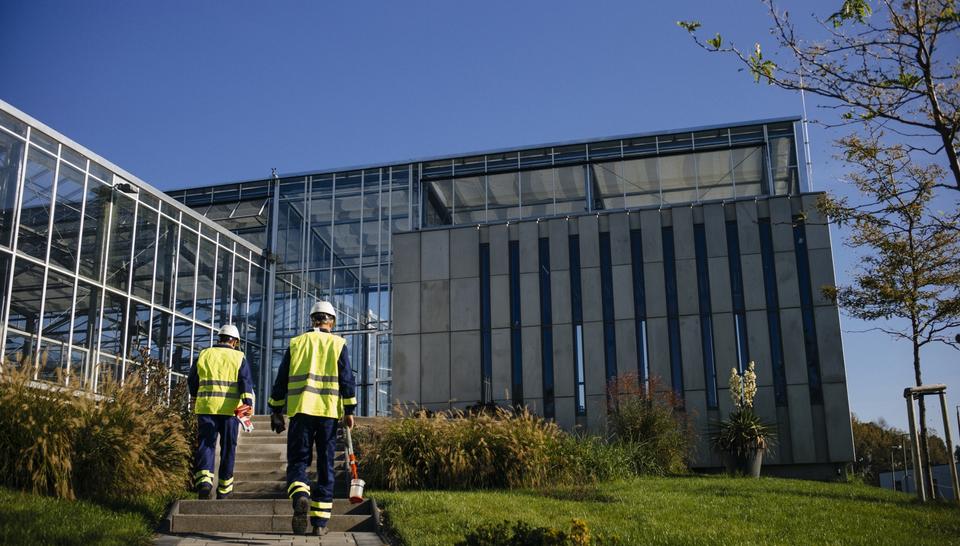
Integrated facility management (IFM) is the consolidation of facility management efforts under a single, unified team. This includes contracts, vendor partnerships, space management, and real estate planning.
IFM isn’t a radical idea, although it may feel like one. Think about the transition to today’s facility management mindset. Data is organized and aggregated across the spectrum. The same goes for managing facilities. Separating management tasks, duties, and resources isn’t the answer. IFM brings them together.
If IFM’s meaning has roots in cohesion, it also has rippling effects of the same caliber. Depending on your current facilities management strategy, making the move to an IFM approach means closing process gaps and controlling costs. Here are a few IFM transition examples:
- Terminate small-vendor contracts in favor of consolidated services with a larger vendor
- Consolidate facilities management duties by delegating oversight to key team members
- Upgrade technologies to reduce manual tasks
- Outsource facilities management operations to a single company or in-house team of qualified experts
The level of IFM varies in scope, but the concept remains the same. The goal is to reduce and eliminate costs, barriers, mistakes, and redundancies.
Focus on what matters most
Higher-level goals govern everyday facility operations. Facility managers should focus first on big-picture goals, then efficiently manage day-to-day tasks.
Don’t renegotiate contracts across multiple vendors and coordinate their varied services. Instead, rely on one company with one contract. Then, use saved energy and time to focus on improving facilities. Instead of working from the bottom up, good managers work from the top down. Less involvement is a good thing. It means things run properly without direct oversight.

IFM controls costs
Cost is one of the biggest drivers behind an IFM transition. IFM is a great example of economies of scale. In the same way you shop at a bulk retailer for a lower cost per unit price, IFM ensures lower operating costs through consolidation.
IFM also highlights operational cost-saving opportunities. It’s easy to pinpoint where you’re spending too much, being wasteful or inefficient, or not properly budgeting.

Making the move to IFM
Shifting to an IFM approach can seem drastic. Consolidate and streamline FM functions to build confidence. Here are four actionable, practical steps:
- Research current processes—Who’s responsible for the broader facilities management tasks? What vendors are you working with? What are your costs? Outline the current state of facilities management to gauge an IFM starting point.
- Communicate with stakeholders—Why are you making the move to IFM? Identify and explain the return on investment and how it justifies changes in processes and responsibilities. Without good communication, stakeholders may not support change.
- Benchmark Goals—Use initial research data to determine how IFM processes compare with legacy practices. Is ROI what you expected? Are you reducing costs and eliminating waste?
- Integrate Technology—Make IFM the platform for expanding your office Internet of Things (IoT) and software capabilities
Like all things transformative, the move to IFM takes time—and the patience to make it incrementally. Avoid chaos and disruptions by making gradual changes. Identify facility management pain points first and scale back on redundant tasks and use integrated data to continue tightening processes.
Most importantly, believe in the proven power of IFM. Consolidate the major moving parts of facilities management and watch as crucial tasks and processes streamline themselves. The benefits of an IFM approach will quickly and continually make themselves apparent.
When an organization wants to outsource its Facility Management requirements, Manone can fulfil the requirements with a complete support. We promise comprehensive solutions for all technical services like Building Automation, Energy, Environment, Project Management, Fire Safety, and more. Manone also has solutions for soft services like Landscaping, Housekeeping, Canteen management, F&B staffing, and much more.
With Manone partnering in Facility Management, our clients can be sure of compliances – technical and legal, adaptation of global state-of-art technology, risk management, and on-time completion and servicing. We ensure cost efficiencies and flexibility of operations.
 Technical Services
Technical Services
 Mechanical & Electrical
Mechanical & Electrical
 Operation And Maintenance
Operation And Maintenance
 Plumbing And Carpentry
Plumbing And Carpentry
 Utility/Energy Management
Utility/Energy Management
 HVAC
HVAC
 Water Treatment System
Water Treatment System
 Fire And Safety System
Fire And Safety System
 Project Management
Project Management
 Critical Environment Management
Critical Environment Management
 Building Automation Management System(BMS)
Building Automation Management System(BMS)
 Soft Services
Soft Services
 Housekeeping
Housekeeping
 Stewarding
Stewarding
 F&B Staff
F&B Staff
 Canteen Management
Canteen Management
 Laundry
Laundry
 Manpower Equipment And Training
Manpower Equipment And Training
 Landscaping And Horticulture
Landscaping And Horticulture
 Facade Cleaning
Facade Cleaning
 Marble Polishing
Marble Polishing
 Upholstery Cleaning
Upholstery Cleaning
 Carpet Cleaning/Shampooing
Carpet Cleaning/Shampooing



 Technical Services
Technical Services Mechanical & Electrical
Mechanical & Electrical Operation And Maintenance
Operation And Maintenance Plumbing And Carpentry
Plumbing And Carpentry Utility/Energy Management
Utility/Energy Management HVAC
HVAC Water Treatment System
Water Treatment System Fire And Safety System
Fire And Safety System Project Management
Project Management Critical Environment Management
Critical Environment Management Building Automation Management System(BMS)
Building Automation Management System(BMS) Soft Services
Soft Services Housekeeping
Housekeeping Stewarding
Stewarding F&B Staff
F&B Staff Canteen Management
Canteen Management Laundry
Laundry Landscaping And Horticulture
Landscaping And Horticulture Facade Cleaning
Facade Cleaning Marble Polishing
Marble Polishing Upholstery Cleaning
Upholstery Cleaning Carpet Cleaning/Shampooing
Carpet Cleaning/Shampooing